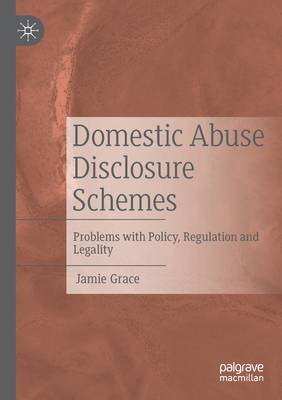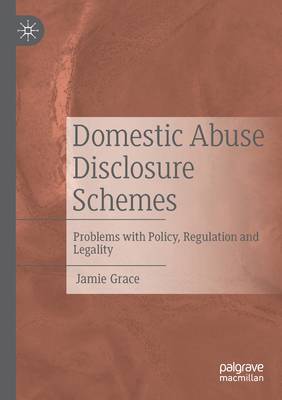
- Afhalen na 1 uur in een winkel met voorraad
- Gratis thuislevering in België vanaf € 30
- Ruim aanbod met 7 miljoen producten
- Afhalen na 1 uur in een winkel met voorraad
- Gratis thuislevering in België vanaf € 30
- Ruim aanbod met 7 miljoen producten
Zoeken
Domestic Abuse Disclosure Schemes
Problems with Policy, Regulation and Legality
Jamie Grace
Paperback | Engels
€ 126,95
+ 253 punten
Uitvoering
Omschrijving
This book draws on empirical work to examine the debates surrounding domestic violence disclosure schemes (also known as Clare's Law), focussing on England and Wales with comparisons to similar jurisdictions. Clare's Law allows any member of the public the right to ask the police if their partner may pose a risk to them. This book sets out a coherent methodology for analysing these schemes which are growing in popularity. It discusses their pros and cons and the challenges with operating and regulating them. It ultimately seeks to examine whether the disclosure of information concerning the criminal history of one person to that person's intimate partner will ultimately increase the likelihood of keeping their partner safe. It speaks to academics working in the domestic violence / regulation/ criminal justice/ criminology fields as well as by policy makers in front line services and government agencies.
Specificaties
Betrokkenen
- Auteur(s):
- Uitgeverij:
Inhoud
- Aantal bladzijden:
- 244
- Taal:
- Engels
Eigenschappen
- Productcode (EAN):
- 9783030890414
- Verschijningsdatum:
- 18/11/2022
- Uitvoering:
- Paperback
- Formaat:
- Trade paperback (VS)
- Afmetingen:
- 148 mm x 210 mm
- Gewicht:
- 326 g

Alleen bij Standaard Boekhandel
+ 253 punten op je klantenkaart van Standaard Boekhandel
Beoordelingen
We publiceren alleen reviews die voldoen aan de voorwaarden voor reviews. Bekijk onze voorwaarden voor reviews.











